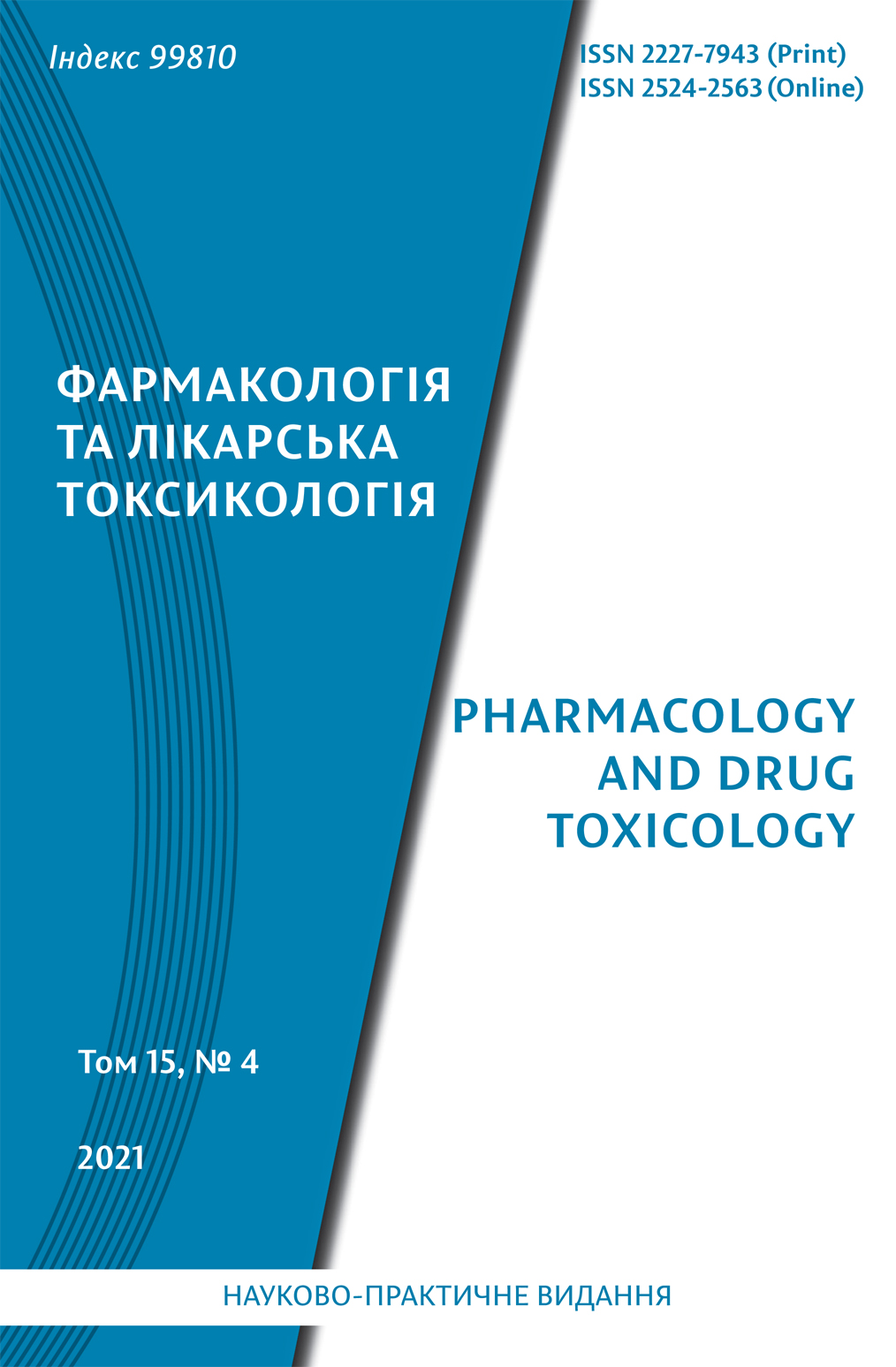Abstract
The adverse consequences of the influence of low temperatures on the body remain an urgent problem in medicine. Medicines that increase body's resistance to hypothermia affect a limited number of links of the pathogenesis of cold injury. Taking into account the pathogenesis complexity of hypothermic
influences, neuropeptides, which are characterized by multifunctional action, are of the corresponding interest.
The aim of the study was to establish the effect of oligopeptides – homologues of the ACTH15–18 fragment on the processes of lipid peroxidation in rat liver on the model of acute cold injury.
The study of prooxidant-antioxidant balance in rat liver was carried out on the model of acute cold injury (t –18 °C, 2 hours). Oligopeptides and the reference drug Semax were administered intranasally at a dose of 20 μg/kg. To evaluate the effect of the test substances on lipid peroxidation processes in rat liver, the
content of TBA-active products, reduced glutathione, catalase and superoxide dismutase activities were determined.
The test peptides significantly prevented the development of hypothermia. Acute hypothermia led to an impairment of the prooxidant-antioxidant balance in rat liver, which was characterized by an increase in the level of TBA-active products in the liver of rats of the control pathology group by 2.8 times in comparison with the index of intact animals; a decrease in the level of reduced glutathione by 1.4 times; a decrease in catalase activity by 13 % and an increase in superoxide dismutase activity by 19 %. Oligopeptides and the reference drug reduced the level of TBA-active products by 1.5 times (peptide KK-1) and 2.0 times (peptide KK-5 and Semax). The studied peptides KK-1 and KK-5 were superior to the reference drug by normalization of the reduced glutathione content, since they significantly increased the level of reduced glutathione by 1.2 and 1.3 times, respectively. Under the influence of peptides, the activity of catalase
increased by 15% in comparison with the control pathology group. No changes in superoxide dismutase activity were observed under the influence of both KK-1 and KK-5 peptides and Semax.
Thus, it was found, that on the model of acute cold injury oligopeptides – homologues of the ACTH15-18 fragment had pronounced frigoprotective and antioxidant properties, preventing the development of hypothermia and normalizing the prooxidant-antioxidant status in rat liver.
